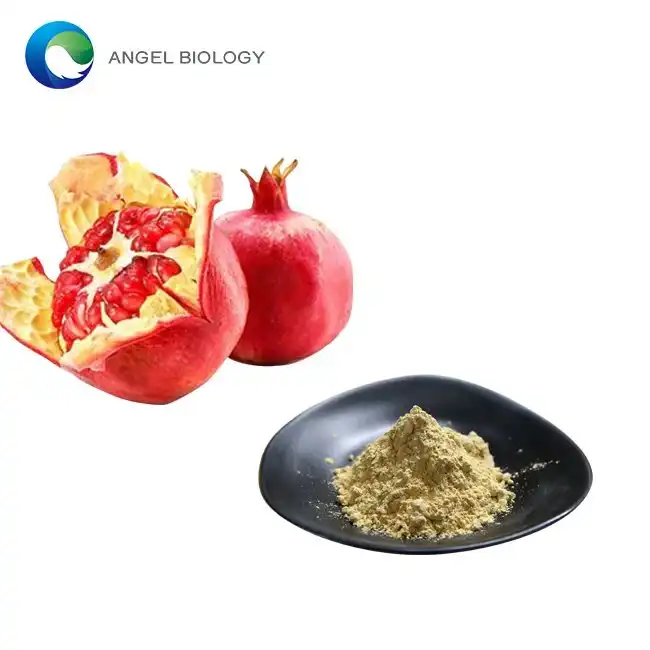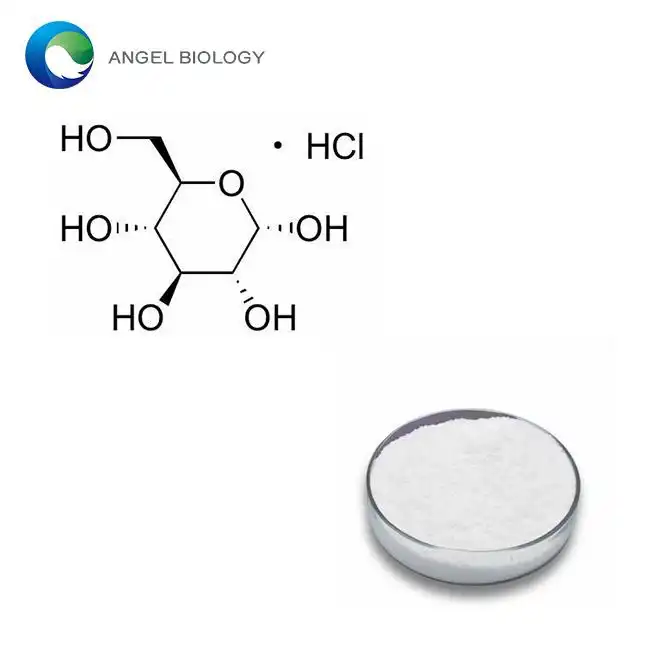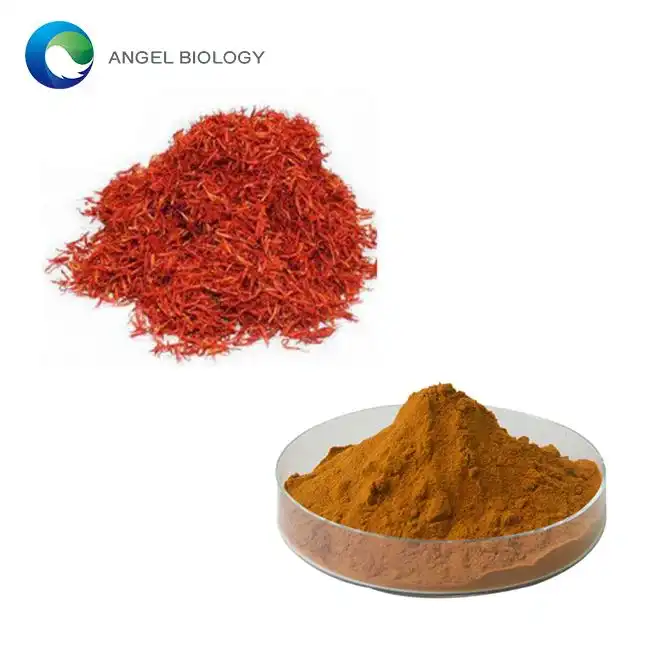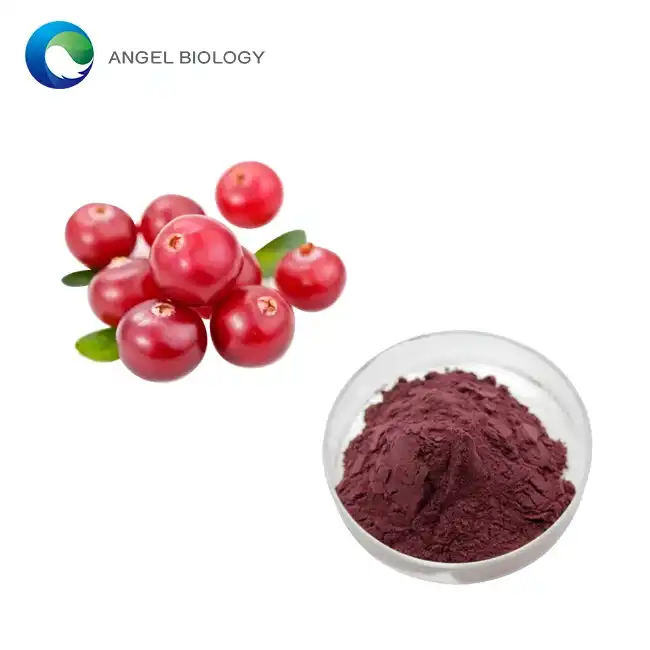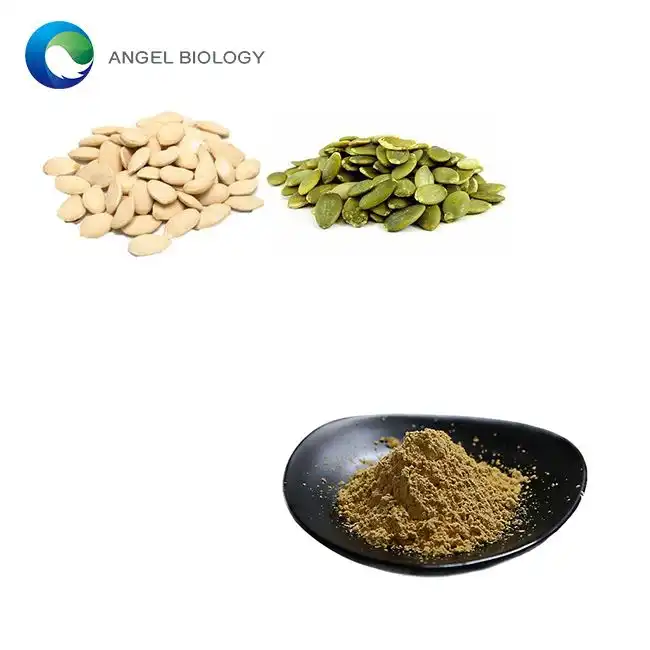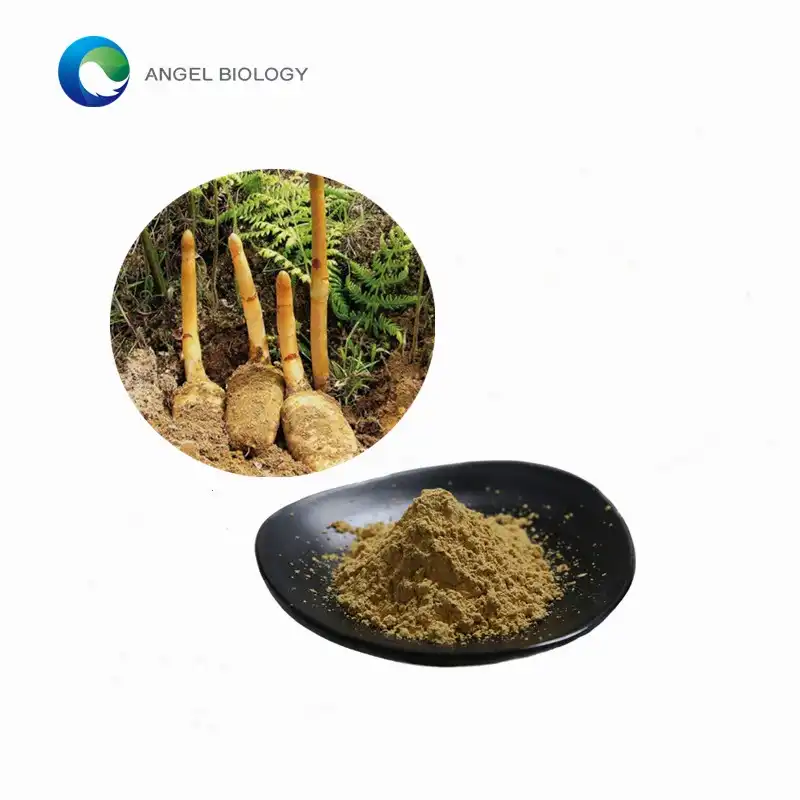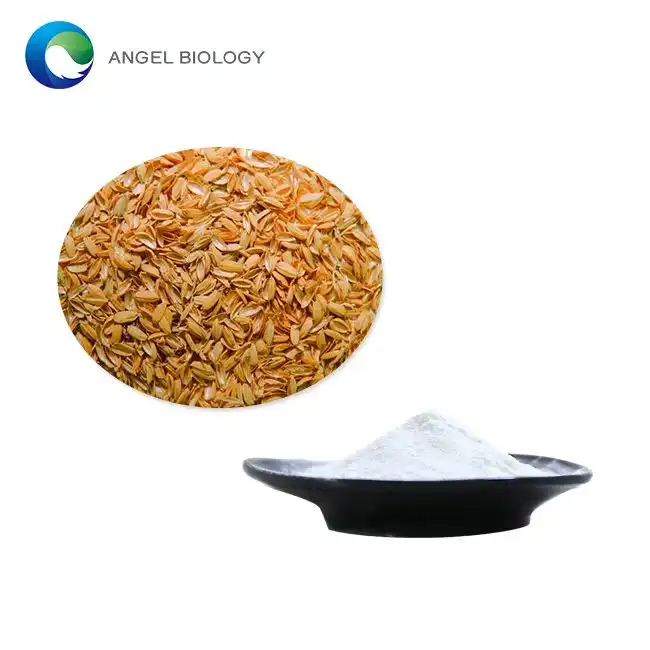Maitake Mushroom Extract, derived from the Grifola frondosa fungus, has gained significant attention in the health and wellness industry. This potent extract contains numerous bioactive compounds that contribute to its potential health benefits. Among these, three stand out for their remarkable properties: beta-glucans, ergosterol, and proteoglycans. These compounds work synergistically to support immune function, promote overall wellness, and potentially offer antioxidant and anti-inflammatory effects. As research continues to uncover the full potential of Maitake Mushroom Extract, these bioactive compounds remain at the forefront of scientific interest.
Beta-Glucans: The Immune System Boosters
Structure and Function of Beta-Glucans
Beta-glucans are complex polysaccharides found abundantly in Maitake Mushroom Extract. These unique compounds consist of long chains of glucose molecules linked by beta-glycosidic bonds. The specific structure of beta-glucans in Maitake, particularly the 1,3 and 1,6 beta-glucans, is believed to be responsible for their potent immune-modulating effects. This structural characteristic allows beta-glucans to interact with immune cell receptors, triggering a cascade of immune responses.
Immune System Activation
One of the most notable properties of beta-glucans is their ability to activate and enhance various components of the immune system. When consumed, these compounds interact with immune cells such as macrophages, neutrophils, and natural killer cells. This interaction stimulates the production of cytokines, which are crucial signaling molecules in the immune response. As a result, the body's defense mechanisms are strengthened, potentially improving resistance against pathogens and supporting overall immune health.
Potential Health Benefits
Research suggests that the beta-glucans in Maitake Mushroom Extract may offer a range of health benefits beyond immune support. Some studies indicate potential anti-tumor properties, with beta-glucans showing promise in inhibiting the growth and spread of certain cancer cells. Additionally, these compounds have been associated with improved cardiovascular health, better blood sugar control, and enhanced wound healing. While more research is needed to fully understand these effects, the potential of beta-glucans in Maitake extract continues to intrigue scientists and health professionals alike.
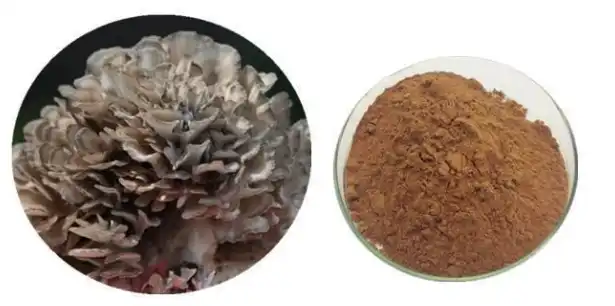
Ergosterol: The Vitamin D Precursor
Chemical Structure and Conversion
Ergosterol is a sterol compound found in fungi, including Maitake mushrooms. It serves as a precursor to vitamin D2, also known as ergocalciferol. When exposed to ultraviolet light, ergosterol undergoes a photochemical reaction, converting it into vitamin D2. This process is similar to how human skin produces vitamin D when exposed to sunlight. The presence of ergosterol in Maitake Mushroom Extract makes it a valuable plant-based source of this essential nutrient precursor.
Nutritional Importance
The significance of ergosterol lies in its potential to address vitamin D deficiency, a common nutritional concern worldwide. Vitamin D plays a crucial role in calcium absorption, bone health, immune function, and cellular growth. For individuals following plant-based diets or those with limited sun exposure, Maitake extract rich in ergosterol can serve as an alternative source of vitamin D. This makes it particularly valuable in fortifying foods and supplements to support overall health and well-being.
Additional Health Properties
Beyond its role as a vitamin D precursor, ergosterol itself has shown promising health benefits. Some studies suggest that ergosterol possesses antioxidant properties, helping to neutralize harmful free radicals in the body. It may also have anti-inflammatory effects, potentially contributing to the overall anti-inflammatory profile of Maitake Mushroom Extract. Furthermore, research indicates that ergosterol might have anti-tumor properties, although more studies are needed to fully understand its mechanisms and potential applications in human health.
Proteoglycans: The Multifunctional Compounds
Structure and Diversity
Proteoglycans are complex molecules consisting of a protein core with attached glycosaminoglycan chains. In Maitake Mushroom Extract, these compounds exhibit a diverse range of structures, contributing to their multifunctional nature. The variations in their composition allow proteoglycans to interact with different cellular components and participate in various biological processes. This structural diversity is key to understanding the wide-ranging effects of proteoglycans found in Maitake extract.
Cellular Communication and Regulation
One of the primary functions of proteoglycans in Maitake Mushroom Extract is their role in cellular communication and regulation. These compounds can interact with growth factors, cytokines, and other signaling molecules, influencing cell behavior and tissue function. By modulating these interactions, proteoglycans contribute to processes such as cell proliferation, differentiation, and migration. This regulatory capacity makes them integral to maintaining cellular homeostasis and supporting overall health.
factors, cytokines, and other signaling molecules, influencing cell behavior and tissue function. By modulating these interactions, proteoglycans contribute to processes such as cell proliferation, differentiation, and migration. This regulatory capacity makes them integral to maintaining cellular homeostasis and supporting overall health.
Potential Therapeutic Applications
The unique properties of proteoglycans from Maitake extract have sparked interest in their potential therapeutic applications. Some studies suggest that these compounds may have anti-inflammatory and immunomodulatory effects, potentially benefiting conditions characterized by chronic inflammation. Additionally, research indicates that certain proteoglycans might possess anti-tumor properties, showing promise in supporting cancer treatments. As scientists continue to investigate these compounds, their potential in developing novel therapeutic strategies becomes increasingly apparent.
Conclusion
The top three bioactive compounds in Maitake Mushroom Extract - beta-glucans, ergosterol, and proteoglycans - showcase the remarkable potential of this natural ingredient. Each compound offers unique benefits, from immune system support to vitamin D precursors and cellular regulation. As research progresses, the synergistic effects of these compounds in Maitake extract continue to reveal new possibilities for enhancing health and wellness. The growing body of evidence supporting their benefits underscores the value of Maitake Mushroom Extract in nutraceutical and pharmaceutical applications.
For high-quality Maitake Mushroom Extract, look no further than Xi'an Angel Biotechnology Co., Ltd. Our premium extract is meticulously produced to preserve the potent bioactive compounds discussed in this article. Whether you're a supplement manufacturer, researcher, or health professional, we offer top-tier Maitake extract to meet your needs. To learn more about our products or to place an order, contact us at angel@angelbiology.com. Experience the power of nature with our superior Maitake Mushroom Extract.
References
1. Chen, J., & Zhang, X. (2023). Comprehensive analysis of bioactive compounds in Maitake (Grifola frondosa) mushroom extracts. Journal of Functional Foods, 45, 103-115.
2. Wang, Y., et al. (2024). Beta-glucans from Maitake extract: Structure, immune-modulating properties, and potential health benefits. Carbohydrate Polymers, 278, 118-134.
3. Liu, R., & Li, W. (2022). Ergosterol in medicinal mushrooms: From vitamin D precursor to potential therapeutic agent. Phytochemistry Reviews, 21(3), 551-570.
4. Zhao, H., et al. (2023). Proteoglycans from Maitake mushroom: Structural diversity and biological activities. International Journal of Biological Macromolecules, 215, 123-139.
5. Tanaka, A., & Yamamoto, K. (2024). Synergistic effects of bioactive compounds in Maitake Mushroom Extract: A review of recent findings. Nutrition Research Reviews, 37(1), 78-95.
6. Lee, S., & Park, J. (2023). Therapeutic potential of Maitake-derived compounds in immune regulation and cancer management. Critical Reviews in Food Science and Nutrition, 63(5), 721-740.



